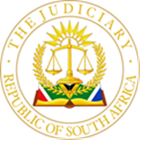
IN THE HIGH COURT OF SOUTH AFRICA
GAUTENG DIVISION, JOHANNESBURG

-
REPORTABLE:
YES/NO -
OF INTEREST TO OTHER JUDGES:
YES/NO -
REVISED
18 October 2023
DATE SIGNATURE
Case No: 11808/2022
In the matter between:
In the matter between: -
TORO YA AFRICA CONSULTANTS (PTY) LTD Applicant
and
STUART JOHN RIDDLE N.O First Respondent
GOOD PURPOSE CONSTRUCTION (PTY) LTD Second Respondent
In re the private arbitration between:
GOOD PURPOSE CONSTRUCTION (PTY) LTD Claimant
and
TORO YA AFRICA CONSULTANTS (PTY) LTD Respondent
Delivered: This judgment was prepared and authored by the Judge whose name is reflected and is handed down electronically by circulation to the Parties/their legal representatives by email and by uploading it to the electronic file of this matter on CaseLines. The date for hand-down is deemed to be 18 October 2023.
LEAVE TO APPEAL JUDGMENT
MALINDI J
-
On 26 July 2023, the court delivered judgment in which Toro ya Africa’s (“Toro”) review application was dismissed with costs. The court held that the procedure not to hear oral evidence but to determine the dispute on the agreed facts and bundle of papers before the arbitrator was one agreed between the parties and within the arbitrator’s powers. It was held further that the award may not be received on the basis of the arbitrator having misapplied the rule as to which party bore the onus of proof, as this was a point of law that Palabora Copper (Pty) Ltd v Motlokwa1 declares is not an irregularity and is not a basis for setting aside an award.
-
In this application for leave to appeal, Toro seeks leave not on the basis that the arbitrator committed an irregularity in that he erred in law or fact. It is contended that the arbitrator’s decision to proceed “on a document’s only basis” denied Toro a fair hearing of the issues and that that constitutes a gross irregularity.
-
Mr Hollander, for Toro, submitted that a fair or prudent arbitrator would have insisted on a procedure that is appropriate to the nature of the dispute to be adjudicated. In this regard, oral evidence would have been appropriate considering the complexities of the matter.
-
On the issue of onus, it was submitted that had the rule on onus been properly applied, the outcome may have been different and that this is a further factor for considering the lack of fairness to all the parties.
-
In Palabora, unfairness is a gross irregularity when in a hearing or a trial the arbitrator misconceives the nature of the inquiry. While it might be fairly contended that a failure to elect a proper procedure may lead to a failure of justice and fairness to the parties, I am not convinced that such a failure constitutes a gross irregularity as envisaged in section 33(1)(a) or (b) of the Arbitration Act2 which reads as follows:
“(1) Where-
(a) any member of an arbitration tribunal has misconducted himself in relation to his duties as arbitrator or umpire; or
(b) an arbitration tribunal has committed any gross irregularity in the conduct of the arbitration proceedings or has exceeded its powers.”
-
Palabora is definitive on the principle that arbitration proceedings are an agreed process between the parties and that the parties submit to how the arbitrator conducts their proceedings, as long as it is within his or her powers and does not misconceive the nature of the inquiry. Parties in this matter were represented by legal representatives and the complexities of a damages claim and the procedure most appropriate to determine them was a live issue from the commencement of proceedings and during oral argument.
-
It is not sufficient to contend that the choice of procedure was as a result of the arbitrator planting the seed for such a process to be followed or instigated or solicited it. The arbitrator merely alerted the parties to one of the procedural aspects to be settled before the commencement of proceedings.
-
Furthermore, all the authorities referred to by Toro point to the fact that the procedure adopted and agreed to by the parties prevails provided that it is fair to both parties. The factual enquiry was based on the evidence placed before the arbitrator by the parties. Each ventilated their case fully on the evidence placed before the arbitrator.
-
As to the submission on the issue of onus, the high watermark for this submission is that had the rule been applied properly, the outcome may have been different. The requirement for leave to appeal is a prospect that a Court of Appeal would find differently. This submission does not meet this requirement.
-
In the circumstances, the following order is made:
-
The application for leave to appeal is dismissed with costs.
_________________________________
G MALINDI
JUDGE OF THE HIGH COURT OF SOUTH AFRICA
GAUTENG DIVISION
JOHANNESBURG
APPEARANCES
COUNSEL FOR THE APPLICANT: Adv L Hollander
INSTRUCTED BY: Theron Jordaan & Smit Inc
COUNSEL FOR THE 2nd RESPONDENT: Adv N Mahlangu
INSTRUCTED BY: Motsoeneng Bill Attorneys
DATE OF LEAVE TO APPEAL HEARING: 18 October 2023
DATE OF JUDGMENT: 18 October 2023
1 [2018] ZASCA 23 at paragraph [8].
Cited documents 1
Judgment 1
| 1. | Palabora Copper (Pty) Ltd v Motlokwa Transport and Construction (Pty) Ltd (298 of 2017) [2018] ZASCA 23 (22 March 2018) | 7 citations |
